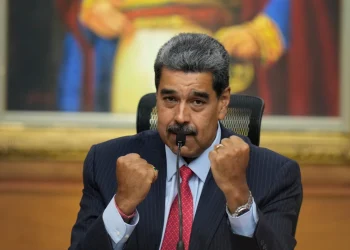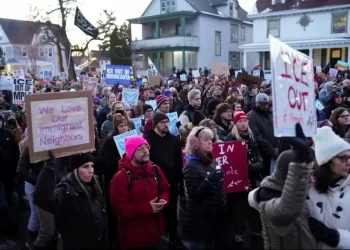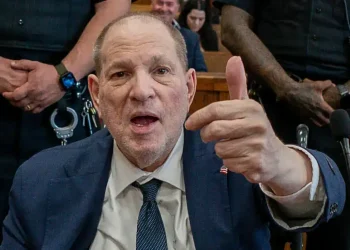The U.S. House Oversight Committee has released more than 23,000 documents related to Jeffrey Epstein, offering new insights into the late financier’s correspondence with politicians, journalists, and global elites. The extensive records include emails spanning years before and after his 2008 conviction, revealing how Epstein continued to cultivate relationships with influential figures despite his criminal record.
Political tensions over document release
The release of the documents quickly became a point of political contention in Washington. Democrats on the committee initially disclosed three emails in which Epstein mentioned former U.S. President Donald Trump. Republicans, accusing their counterparts of selective disclosure, responded by releasing the full trove of 23,000 documents to provide what they described as “complete context.”
Epstein, who died by suicide in a Manhattan jail cell in 2019 while awaiting trial on federal sex trafficking charges, had previously served a one-year sentence in Florida after pleading guilty in 2008 to soliciting prostitution from a minor. His social and professional network—spanning politics, academia, and business—remained remarkably intact after his first conviction.
Epstein’s references to Trump
Several of the newly released emails feature Epstein’s exchanges with journalists and associates in which he discussed former President Trump. Epstein and Trump were acquaintances for years before reportedly having a falling out in the mid-2000s, well before Epstein’s criminal activities gained broader public attention.
One 2019 email to author and journalist Michael Wolff drew attention after Epstein referred to Virginia Giuffre, one of his accusers, who had worked at Trump’s Mar-a-Lago resort. “She was the one who accused Prince Andrew,” Epstein wrote.
Epstein added in the same exchange that Trump “knew about the girls,” though the context of that statement remains unclear. Trump has long maintained that he banned Epstein from his private club, claiming Epstein had been “taking people who worked for me.”
Giuffre, who died by suicide earlier this year, had previously stated that she met Trump once and that he had not been involved in Epstein’s alleged abuse of minors. She also said she did not believe Trump was aware of Epstein’s crimes.
White House Press Secretary Karoline Leavitt criticized Democrats for what she described as an attempt to “create a fake narrative to smear President Trump” through selective document leaks.
References to Prince Andrew and Ghislaine Maxwell
Epstein’s correspondence also revisits his longstanding association with Britain’s Prince Andrew—now known as Andrew Mountbatten-Windsor. Giuffre alleged that Epstein and his former companion, Ghislaine Maxwell, coerced her into sexual encounters with Andrew when she was 17. The claims led to Andrew’s withdrawal from royal duties and the loss of several titles.
In a 2011 email, Epstein disputed Giuffre’s credibility, writing to a reporter, “Yes, she was on my plane, and yes she had her picture taken with Andrew as many of my employees have, but this girl is a total liar.” He then said he would ask whether Andrew’s “people” would cooperate with the journalist on a story.
Another message that same year referenced both Trump and Giuffre. “i want you to realize that that dog that hasn’t barked is trump,” Epstein wrote to Maxwell, suggesting that despite Giuffre’s time at his home, Trump had never been accused of misconduct. Maxwell replied, “I have been thinking about that.”
Mountbatten-Windsor has consistently denied any wrongdoing.
Clinton and the Caribbean island allegations
Several emails show Epstein’s efforts to respond to claims that former President Bill Clinton had visited his private island in the Caribbean. “Presidents at dinner on Caribbean islands (Clinton was never ever there, easy to confirm),” Epstein wrote, dismissing Giuffre’s published account as false.
Clinton has acknowledged traveling on Epstein’s private jet for charitable work linked to the Clinton Foundation but has denied visiting Epstein’s island or being aware of his criminal behavior. None of Epstein’s known accusers have implicated Clinton in any abuse.
Epstein’s relationship with the press
Many of the released emails depict Epstein as a frequent correspondent with reporters who sought his insights on politics, finance, and the elite circles he moved in. Several journalists reached out to him for off-the-record commentary, including on topics such as global oil markets and the personal relationships of world leaders.
In return, Epstein appeared eager to influence how he was portrayed in the media. He often contested published allegations and tried to leverage his connections to counter negative coverage.
In one 2016 email, he told a reporter, “I never met Al Gore. No diners on the island either, no matter how much detail has been in the press.” He further encouraged the journalist to emphasize that Clinton “was never on the island.”
Epstein’s communications suggest that, even after his first conviction, he sought to maintain a position of influence through his access to prominent individuals and journalists.
Broader implications of the document release
The new trove of emails has reignited scrutiny of how Epstein managed to remain socially and professionally connected despite his criminal history. Analysts say the release underscores the complex intersection of money, power, and influence in elite circles.
Legal experts note that while many of the emails offer limited new evidence, they may provide additional insight into Epstein’s efforts to manage his image and relationships in the years leading up to his death.
The House Oversight Committee said its goal in publishing the documents was to ensure transparency and allow the public to review the full extent of Epstein’s communications with political, media, and financial figures.
Epstein’s death in 2019, ruled a suicide by New York City’s medical examiner, continues to fuel public debate and conspiracy theories, though no credible evidence has emerged to suggest foul play.
As congressional investigators and journalists sift through the thousands of pages of correspondence, the newly released files are likely to renew discussion about accountability, privilege, and the enduring influence of wealth in political and social systems worldwide.
This article was rewritten by JournosNews.com based on verified reporting from trusted sources. The content has been independently reviewed, fact-checked, and edited for accuracy, neutrality, tone, and global readability in accordance with Google News and AdSense standards.
All opinions, quotes, or statements from contributors, experts, or sourced organizations do not necessarily reflect the views of JournosNews.com. JournosNews.com maintains full editorial independence from any external funders, sponsors, or organizations.
Stay informed with JournosNews.com — your trusted source for verified global reporting and in-depth analysis. Follow us on Google News, BlueSky, and X for real-time updates.














